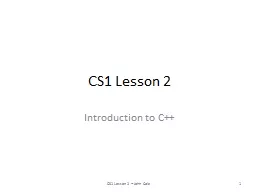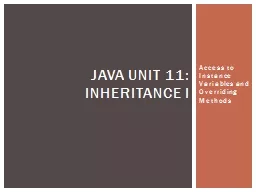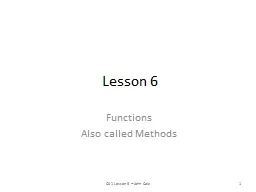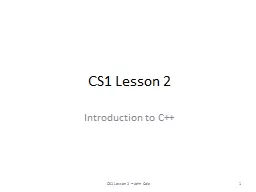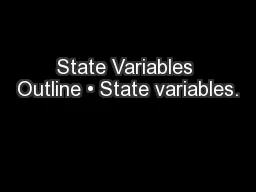PPT-Variables Lesson
Author : trish-goza | Published Date : 2017-07-02
CS1313 Spring 2017 1 Variables Lesson Outline Variables Lesson Outline Data Types What is a Variable What is a Variable With Examples What Does a Variable Have
Presentation Embed Code
Download Presentation
Download Presentation The PPT/PDF document "Variables Lesson" is the property of its rightful owner. Permission is granted to download and print the materials on this website for personal, non-commercial use only, and to display it on your personal computer provided you do not modify the materials and that you retain all copyright notices contained in the materials. By downloading content from our website, you accept the terms of this agreement.
Variables Lesson: Transcript
Download Rules Of Document
"Variables Lesson"The content belongs to its owner. You may download and print it for personal use, without modification, and keep all copyright notices. By downloading, you agree to these terms.
Related Documents






